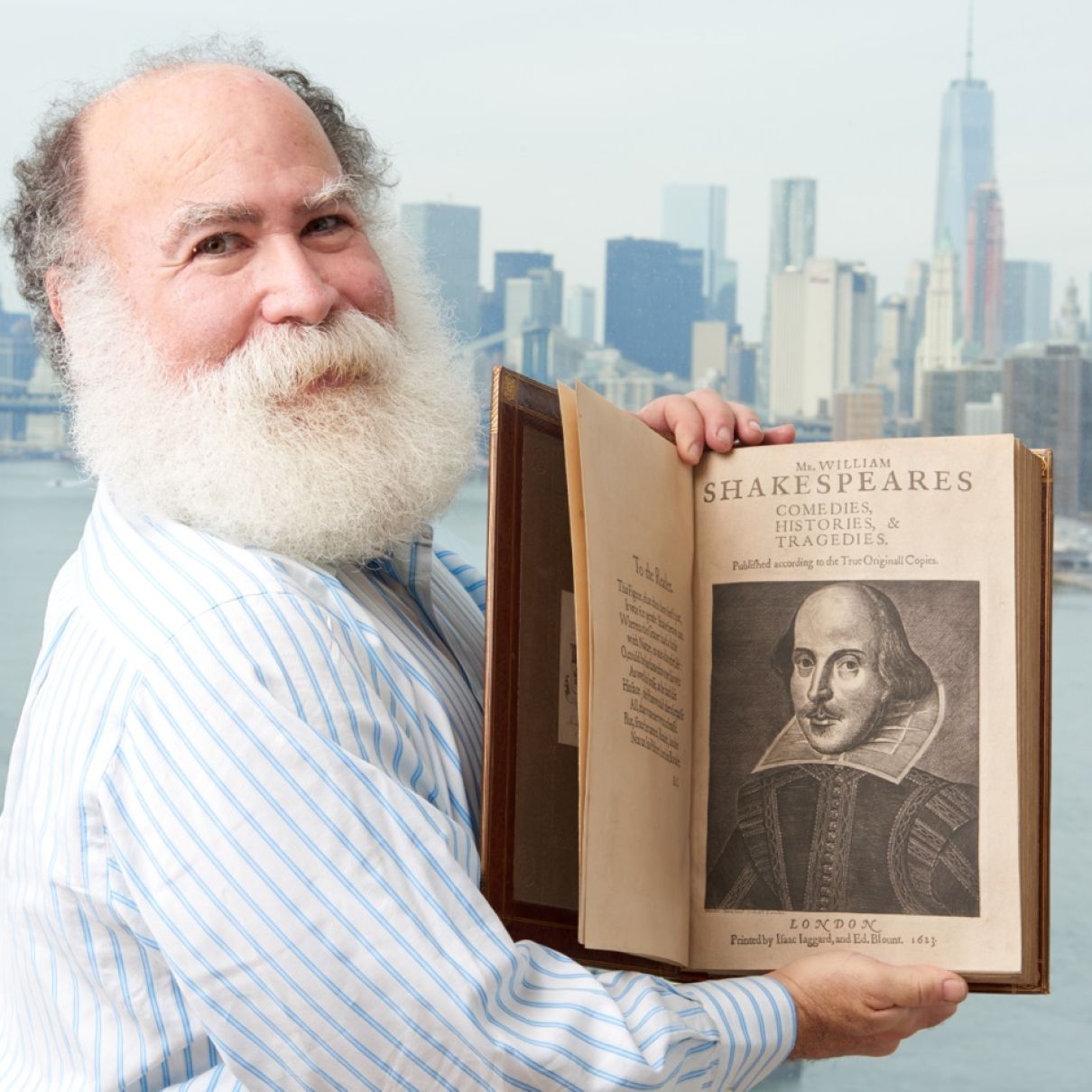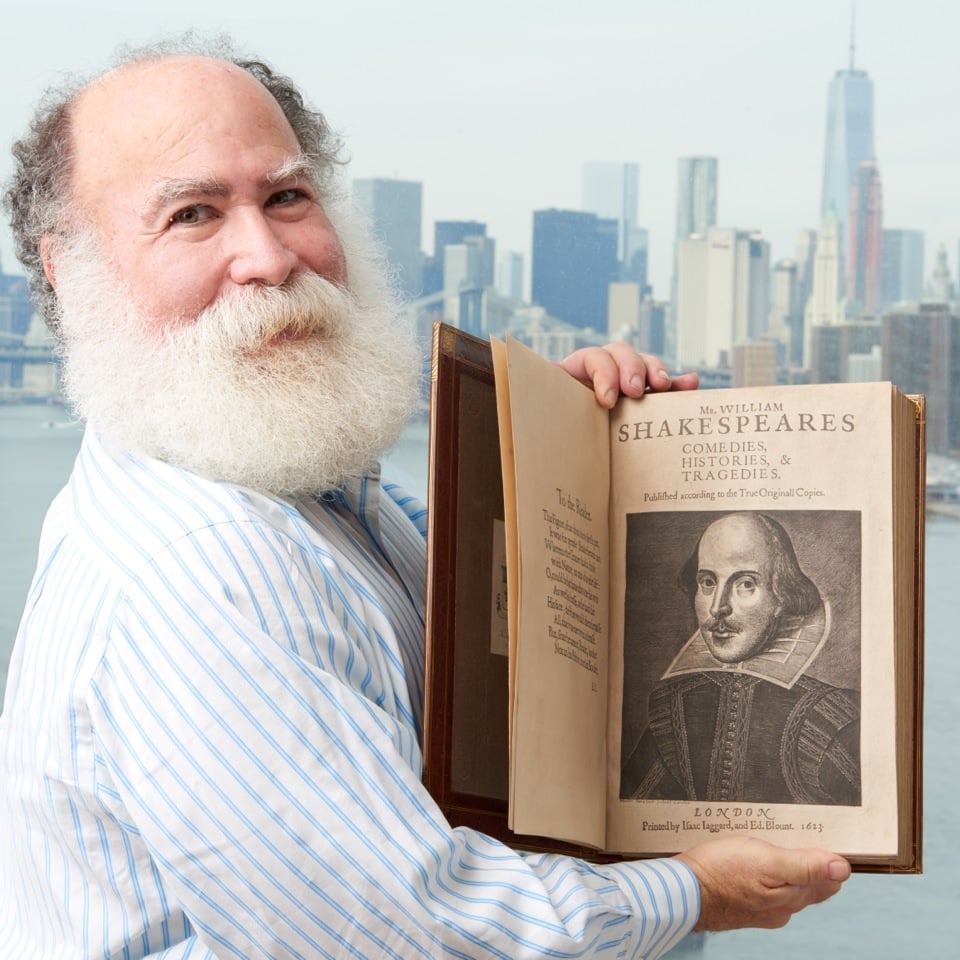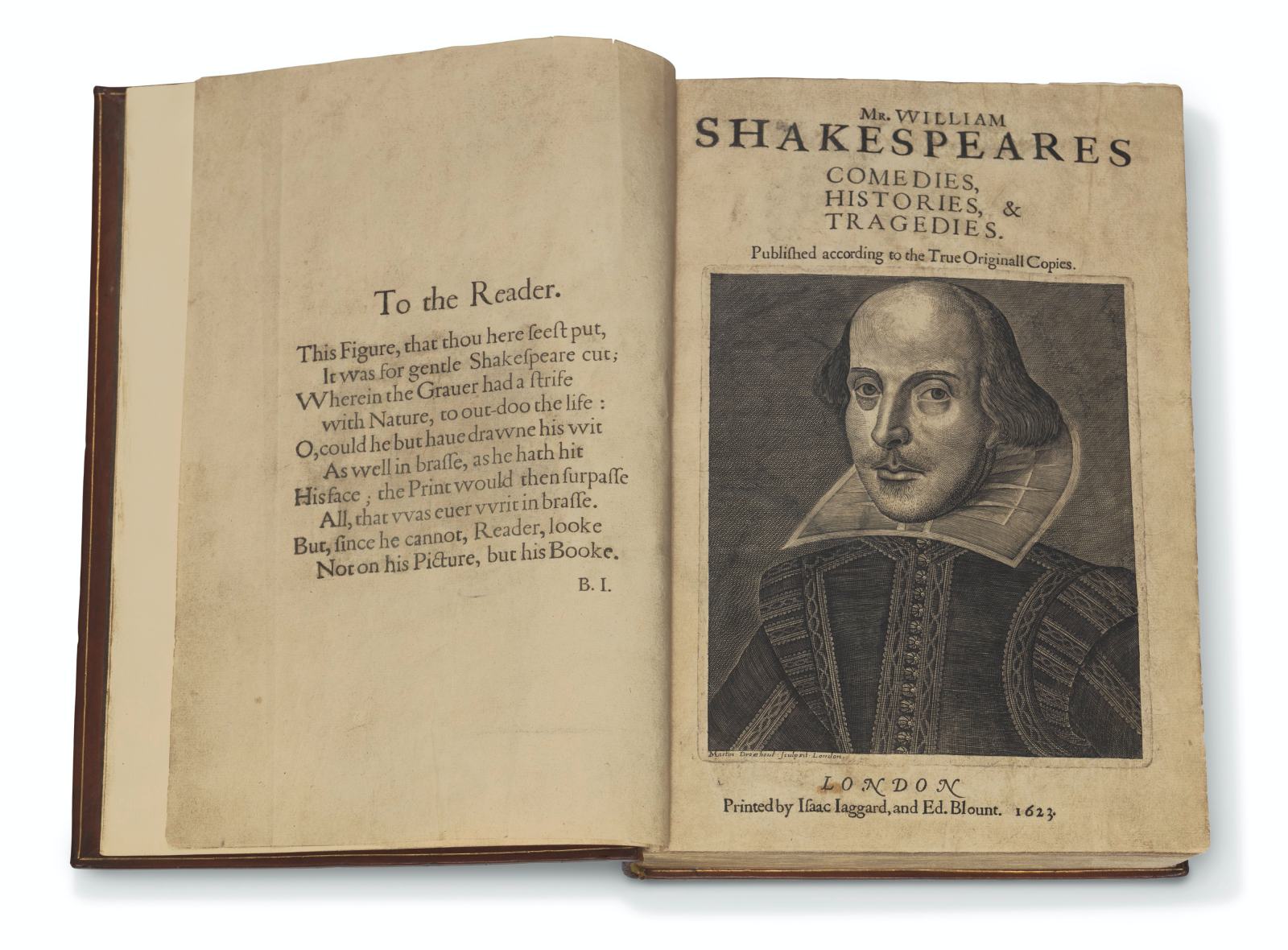Page Turner

Inside the awe-inspiring book collection of US antiquarian Stephan Loewentheil.

Towards the end of last year, following six minutes of heated telephone bidding, William Shakespeare’s First Folio — the earliest collection of the Bard’s world-famous plays — sold for nearly US$10 million at auction through Christie’s, New York.
It set a world record for a work of literature.
The determined victor was 70-year-old US antiquarian Stephan Loewentheil. Despite the initial US$4-6 million estimate set by the auction house, he says he had fully expected to pay the final US$9.9 million. The seller had bought it for about US$6 million, a decade ago.
“William Shakespeare is incomparably the greatest writer in the English language and one of most important international cultural influencers in all history,” he explains over Zoom from his organic farm in Trout Creek, a small town in Delaware County. Loewentheil has just finished a long walk by a lake lined with red oaks, chestnuts and pitch pines, accompanied by his loyal dog: a daily ritual he has enjoyed for years.
“The First Folio is the most important collection of plays ever published and revered throughout the world. It is an honour to purchase one of only a handful of complete copies.”
This is the fifth First Folio that has passed through Loewentheil’s hands (there are only six complete copies known), and he has sold them to some of the world’s most impressive people. Books from Loewentheil’s stock now reside in the collections of the world’s most elite institutions and the libraries of world leaders, such as Bill Clinton, the Dalai Lama, Pope John Paul II, Benjamin Netanyahu, Mikhail Gorbachev, Yitzhak Rabin, Tony Blair, King Abdullah of Saudi Arabia, and the Sultan of Brunei.

Each successive US president since George HW Bush has purchased books from Loewentheil as state gifts (although he has yet to be contacted by the Trump administration).
He also has an incredible photography collection, which includes an important collection of early photography of China, some 21,000 original images of Chinese life from between 1850 and 1920. The Cultural Revolution, which saw the bulk of China’s traditional art and artists destroyed, gives added significance to this collection.
The images portray historic architecture, important people, and the legendary natural beauty of China from the rivers to the mountains, the Great Wall to the Forbidden City. He is currently looking for a home for this collection and hopes to find a buyer in its homeland. “It does belong in China and the preservation of history should surpass day-to-day politics.”
Loewentheil’s obsession with collecting transcends his own personal taste, partly out of a sense of duty. “My job as an antiquarian is to preserve great thoughts and photographs for generations to come.”
But he fell into collecting quite by accident. He started out as a real-estate lawyer with a degree from Cornell University, but he was never happy in his job. As a hobby, he began studying literature.
“I said to my wife, ‘something is wrong here’. I was spending eight to 10 hours a day working as a lawyer and two hours a night reading literature, and I only felt engaged during those two hours.”
Through literature he became curious about what 19th century thought leaders looked like. “So, I started collecting photographs so I could feel closer to them.” He transitioned into collecting photographs of pre-Industrial Revolution times, which he felt was of major historical importance. “I was preserving a visual history of places that had not changed for five centuries, but then changed completely within 50 years.”
Through a twist of fate, he met the owner of a bookstore and learned about being an antiquarian. He gradually transitioned into making it his profession and, by his mid-30s, he was selling serious books to serious people.
“I focus on people and institutions who have a deep love of literature and history,” he says. “Great thoughts are preserved in books and photography.”
Now Loewentheil has a “modest” collection of some 2,000 books in a specialist climate-controlled storage unit in New York, where you will also find his 19th Century Rare Book and Photograph Shop. A shrine to mankind’s greatest achievements, you can browse his store and website, which include treasures such as first editions of More’s Utopia; Luther’s 95 Theses; Machiavelli’s Il Principe; Copernicus’s De Revolutionibus; Whitman’s Leaves of Grass; Einstein’s own annotated copy of the theory of special relativity; the King James Bible; and the US constitution. He is a particular fan of 19th century US writer Edgar Allan Poe and has bought and sold annotated copies of two of his books.
Is there any book he would never sell? “Since the ancient Egyptians, no one is allowed to take worldly goods to the next life, so no,” he laughs. “I don’t want to die with the things I love, nor do I want to burden my children, I want to find them homes.” In fact, his greatest joy is to find a place “where [the book] really belongs and at that point it is a moral obligation to let it go free”.
Some of his personal favourite books include Ernest Hemingway’s The Old Man and The Sea and JD Salinger’s The Catcher in the Rye, and he also loves JRR Tolkien. But on his bedside table currently there are two books: one, a mystery/crime novel; and the other describes how beavers and other wildlife have influenced the topography of the American West. He is a diverse reader to say the least.
It is well documented that this year, with COVID-induced lockdowns, people’s reading habits have surged as they have more time on their hands and a need to escape. One of the UK’s largest publishers, Bloomsbury Publishing, announced their best half-year profits in over 10 years, thanks to a huge increase in demand for books.
Bloomsbury said that they had seen an increase in demand for both their e-book/digital content, as well as print books, which was consistent throughout the lockdown period, suggesting that there are many people who have discovered a love of reading which is now enduring well beyond the lockdown.
Loewentheil agrees. “Books provide a solace in difficult times.”









